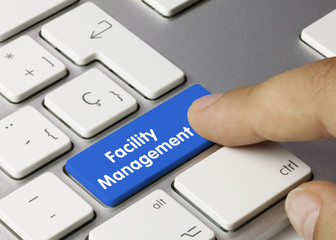Facility management plays a crucial role in ensuring the smooth operation of buildings and facilities. However, the sector in Nigeria faces challenges when it comes to salaries and wages for facility managers. Additionally, limited training and development opportunities hinder the growth potential of professionals in this field.
We have witnessed a concerning trend of incompetent and untrained individuals taking up facility management roles due to the misconception that it requires minimal expertise. This is particularly evident when homeowners, developers, and service users like tenants, residents, and estate associations insist on employing direct labor for complex facility management services in residential and commercial buildings. Unfortunately, the aftermath of such decisions becomes apparent when serious facility breakdowns occur, including theft, equipment abuse, security breaches, lack of proper records, service disruptions, inadequate facility audits, succession planning issues, absenteeism, and various other breakdowns in facility management.
Challenges in Salaries and Wages:
One of the main challenges faced by facility managers in Nigeria is the issue of salaries and wages. Many professionals in this sector are not adequately compensated for their skills and expertise. This can lead to a lack of motivation, job dissatisfaction, and difficulty in attracting and retaining top talent. The disparity in salaries compared to other industries further exacerbates the problem. A recent salary survey was conducted, involving over 300 facility managers from various facility management companies in Lagos. The survey revealed that facility managers with 5-7 years of experience earn an average salary range of between 200,000 – 320,000 Naira per month, with the majority earning 220,000 Naira. Only about 50% of facility managers are entitled to HMO, Pension and 13th-month bonuses, while the most common perks include data and calls or transportation allowances. These perks are understandable as effective and timely communication is crucial in facility management, which involves constant interaction with people and machines in a continuous flow.
Training and Development Opportunities:
Another challenge in Nigeria’s facility management sector is the limited availability of training and development opportunities. Continuous learning is crucial for facility managers to stay updated with industry trends, technological advancements, and best practices. However, the lack of structured training programs and professional development initiatives hinders their growth potential. Several facility management companies have adopted in-house training and on-the-job training to address skills and knowledge gaps, which has proven to be productive. However, a significant challenge arises in terms of the time required for employees to step away from their projects and engage in learning opportunities. Additionally, there is a lack of adequate facilities to expose facility teams to new technologies, equipment, and terrains. The cost of external training programs is often high, and facility management companies struggle to afford these sophisticated trainings due to limited funds from management fees, which are already allocated for essential business development needs.
Restriction of Low Management Fees:
In addition to salary challenges, facility managers often face limitations when it comes to charging appropriate management fees. Some clients may have unrealistic expectations regarding the fees they are willing to pay for facility management services. This can lead to underpayment and hinder the ability of facility management companies to invest in training programs, technology upgrades, and employee development.
Solutions To The Salary and Wages Challenges in Facility Management Sector in Nigeria:
To address these challenges and unlock growth in Nigeria’s facility management sector, several solutions can be implemented:
Industry Collaboration: Stakeholders, including facility management associations, companies, and government bodies, should collaborate to establish industry-wide standards for salaries and wages. This will ensure fair compensation for facility managers based on their skills, experience, and responsibilities.
Training and Development Programs: Organizations should invest in comprehensive training and development programs for facility managers. This can include certifications, workshops, mentorship programs, and partnerships with educational institutions. By enhancing their skills and knowledge, facility managers can provide better services and command higher salaries.
Educating Clients: Facility management companies need to educate clients about the value they provide and the importance of fair compensation. By demonstrating the impact of quality facility management on operational efficiency, cost savings, and tenant satisfaction, clients will understand the need for appropriate management fees.
By implementing these solutions, the sector can attract and retain competent professionals while fostering growth and excellence in facility management practices across Nigeria.


